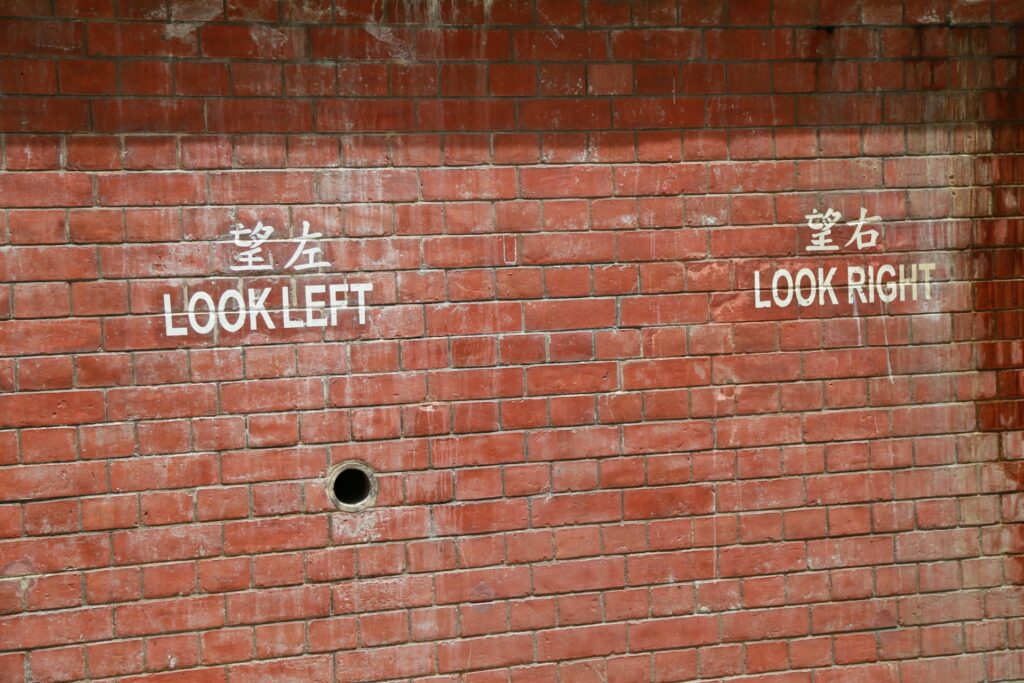Truth Matters
What is truth?
This infamous line uttered by Pontious Pilate during Jesus’ last conversation before the crucifixion might just be the most important question of all. Pilate’s query was rhetorical, a reflection of his doubt, skepticism, and perhaps cynicism in a world full of political manipulation and shifting ideologies.
But today, this question is as relevant as ever. What is truth? And why does it matter?
This isn’t just another philosophical debate gathering dust in university corridors. The battle over truth is silently dismantling the very foundation of our shared reality.
When everyone claims their own version of truth, we’re not just dealing with different perspectives—we’re witnessing the collapse of the bridges that connect human minds and hearts.
Think about it: How can we fight injustice if “justice” is just someone’s opinion? How can we protect human rights if “human dignity” is merely a personal truth? How can we teach our children, build lasting relationships, or create functioning societies if truth itself has been reduced to a matter of preference, like choosing between chocolate and vanilla?
The “your truth, my truth” mentality isn’t just wrong—it’s catastrophic.
It’s the intellectual equivalent of removing the foundations from a building while expecting it to stand.
This crisis of truth isn’t just changing how we think—it’s transforming how we live, love, and build our future. And perhaps most chillingly, it’s happening so gradually that many don’t even realize they’re standing on shifting sand until the ground begins to crumble beneath their feet.
Your Truth or Mine?
What we believe about truth really matters. Our beliefs about truth shape how we navigate the world, how we relate to others, and how we make sense of our experiences. At the core of this discussion lies a pivotal question: Is truth subjective—shaped by individual perspectives—or is there such a thing as absolute truth, independent of what we think or feel?
We often hear people say things like, “That’s my truth,” or “You have your truth, and I have mine.” At first, this sounds nice—it’s a way of respecting each other’s perspectives. But when you stop and think about it, the idea that we each have our own personal truth can lead to some pretty big problems. Let’s explore why there actually needs to be an absolute truth—something that’s true for everyone, no matter who you are or what you believe—for any truth to exist at all.
1. Truth Needs to Match Reality
Truth isn’t just what we feel or believe—it’s about whether our beliefs align with the way things actually are. For example, if I say, “The sky is blue,” that’s not just my personal opinion. It’s a fact that corresponds to something we can all observe. We all live in the same world, and truth is what reflects that reality.
Imagine if someone insisted, “Well, my truth is that the sky is green.” It wouldn’t take long before we’d have a problem. No matter how sincerely someone believes it, the sky won’t suddenly turn green just because they see it that way. The color of the sky is something we can objectively verify, and it doesn’t change based on personal views.
2. Contradictory Truths Can’t Both Be Right
Now, let’s take this idea a step further. What happens when two people claim to have different “truths” that directly contradict each other? Say one person claims, “The earth is round,” and another insists, “The earth is flat.” These statements can’t both be true at the same time because they’re describing opposite realities. Only one of them can actually reflect how the world works.
If we accepted both as true, we’d have chaos—no way to agree on what’s real. Imagine trying to design a plane or launch a satellite when some people believe the earth is round and others think it’s flat.

3. We Need Shared Truths to Make Sense of the World
Think about how we communicate and make decisions in everyday life. We rely on some level of shared understanding to get anything done. If everyone had their own version of reality, we couldn’t make plans, have rational discussions, or agree on anything.
For example, imagine trying to cross the street in a world where traffic lights mean different things to different people. One person sees a red light and thinks it means “stop,” while someone else believes their “truth” is that red means “go.” This would obviously be dangerous. Shared truths—like the basic rules of traffic—are essential for things to function properly in society.
4. Reality Exists Outside of Our Opinions
It’s true that people have different perspectives and experiences. But our personal experiences don’t change the facts about reality. Let’s say you and a friend attend the same concert. You might love the music, while your friend hates it. Both of your feelings are valid, but they don’t change the fact that the concert happened at a specific time and place, with a specific setlist. Your opinions don’t alter the reality of the event itself.
In the same way, certain truths exist independently of how we feel about them. Facts like gravity, historical events, or basic math (2 + 2 = 4) are true no matter who we are or how we might perceive them. These kinds of truths are what we call absolute truths—they’re not subject to personal interpretation.
5. What About Morality?
The idea of “my truth” and “your truth” becomes even more complicated when we talk about moral issues. If we each had our own version of moral truth, it would be hard to agree on what’s right or wrong. For example, one person might say, “It’s okay for me to steal because that’s my truth,” while someone else says, “Stealing is always wrong.”
Without a shared moral foundation, how could we ever say that one action is better than another?
We rely on certain objective truths—like fairness, justice, and the value of human life—to guide our actions and laws. If morality were purely personal, society would have no way to protect people from harm or hold anyone accountable for their actions.
The Bottom Line
At the end of the day, without some form of absolute truth, the very idea of “truth” would fall apart. It’s not about rejecting people’s personal experiences or beliefs, but about recognizing that truth has to be grounded in something more than just opinion.
Truth as the Foundation of Reality
Truth is not just a philosophical concept; it is the very foundation of reality. Without truth, reality collapses into chaos, leaving us in a world where facts become subjective and reality becomes malleable. Truth, in its essence, is what grounds us—giving structure, coherence, and meaning to the world we experience.
I like to think about truth as a compass—a reliable guide that points us in the right direction. Just as a compass helps us navigate through unknown terrain, truth provides us with the orientation we need to make sense of life’s complexities. Without truth, we are like sailors lost at sea, drifting without a sense of where we are or where we’re headed.

The Compass and Our Need for Direction
A compass always points toward a fixed, unchanging direction—true north. No matter where you are or what conditions surround you, the compass consistently gives you the same reading, orienting you toward a specific point of reference. In much the same way, truth offers us something solid, something that doesn’t shift based on our circumstances or desires. It’s constant, regardless of time or place.
How Can We Know What Is True?
Jesus often spoke about truth, and one of his most famous statements is found in John 14:6, where he says:
“I am the way, the truth, and the life. No one comes to the Father except through me.”
In this statement, Jesus identifies himself not just as someone who teaches or knows the truth, but as the embodiment of truth itself. This implies that truth is not just a set of facts or ideas but is found in the person of Jesus.
Another key moment is in John 18:37, during his trial before Pontius Pilate. Jesus says:
“For this purpose I was born and for this purpose I have come into the world—to bear witness to the truth. Everyone who is of the truth listens to my voice.”
Here, Jesus emphasizes that his mission on earth is to reveal and testify to the truth, and that those who seek the truth will recognize it in him.
In these teachings, Jesus ties truth directly to a relationship with God, indicating that truth is ultimately spiritual and personal, not just philosophical or abstract.
How I Found Truth
My journey didn’t start with Jesus, but with an obsessive search for truth.
I had countless questions and doubts—deep questions about the purpose of life, why any of it really matters, and what happens to us after we die. In my most honest moments, I felt lonely and afraid. Eventually, I grew tired of distracting myself and avoiding those questions.
I was raised in a Christian family, but we weren’t deeply religious. I knew the Bible and the basic teachings, but I was never sure if any of it was actually true. I reached a point where I was ready to set aside everything I thought I believed in order to make space for reality.
The Process of Deconstructing
My singular focus became this: to walk toward truth, no matter where it led. I was determined to let go of anything that didn’t hold up to reality and cling only to what was true, as far as I could reason and understand it.
I had no idea where this journey would take me, but I knew it was the only way forward. I began with the most foundational question: Is this universe random, or is it created? For an entire year, I dove deep—reading, contemplating, and wrestling with arguments anywhere I could find them. After much searching, my first premise about truth was that the universe is indeed created and it’s not just by random chance.
I should note that I’m summarizing all of the core ideas that guided me toward these truths for the sake of brevity; there’s much more to share about the details that shaped my understanding. For now, consider this an overview of my journey.
The most compelling arguments for me were the fine-tuning of the universe—how the physical constants of nature seem precisely set for life to exist—and the complex design evident in DNA, which points to an intelligent designer. There were other powerful arguments too, but these stood out the most.
From there, I turned to the next big question: if the universe is created, who is this creator? Is the creator benevolent or malevolent? Is this a good God, or an indifferent or even evil force? As I explored this, I began asking whether there was one God or many, and if this God could be known at all. And another big one for me: why doesn’t God allow himself to be know more readily? Do all religions point to truth in their own ways or is truth exclusive to Jesus, as he claims?
Then came the critical question: was Jesus a real person, and could the Bible’s account of him be trusted? I dove into historical research on the resurrection, wrestled with whether the Bible was reliable, and studied the evidence for Jesus’ life and death.
Alongside these big theological questions, philosophical ones also surfaced—questions about the existence of evil, free will, and how a good God could allow suffering in the world. These weren’t easy questions, and they pushed me to think more deeply than I ever had before.
Putting the Pieces Back Together
Through all this searching, something inside me was being built, piece by piece. Every question answered, every insight gained, felt like a brick in a foundation. And the closer I walked toward this God I was learning about, the more real and undeniable He became. The path wasn’t always clear, but it was leading me toward something—and Someone—solid and true.
Jesus tells those who are curious, “Seek and you will find; knock and the door will be opened to you” (Matthew 7:7).
Over time, I kept encountering Jesus—his teachings and his claims about being the truth—and it challenged me to dig deeper. The more I learned, the more I realized that the truth I was searching for wasn’t just a concept, but a person. In the end, my search for truth led me to Jesus, and that’s where I found the best answers to the big questions that I had been seeking.
I don’t have all the answers, but I have found life changing peace in this process. I’m on an endless quest for truth. I hope you’ll join me.

Putting on the Coat
I once heard a really great analogy that stuck with me. Imagine a man who goes to a tailor to get the perfect coat made just for him. The tailor takes all the measurements—shoulders, sleeves, body length—making sure everything is spot on. The man feels 99% positive that the numbers are right. But here’s the catch: he won’t know if the coat actually fits him until he puts it on.
This is a perfect way to think about faith. We spend a lot of time searching for the truth, gathering answers, and feeling sure we’ve got it all figured out. But at some point, we have to take that leap and “put on the coat.” It’s only by trying it on ourselves that we can really see if the beliefs we’ve chosen are true.
How to Experience Truth
One of the most beautiful promises Jesus makes is found in John 8:32: “Then you will know the truth, and the truth will set you free.” This freedom is not just about moral clarity but also emotional and spiritual freedom. When you live in the truth that Jesus teaches—knowing that you are loved, forgiven, and valuable beyond measure—it frees you from the lies that often trap us: the lie that we’re not good enough, the lie that we must earn our worth, or the lie that life has no meaning. Finding truth in Jesus brings a freedom that goes beyond external circumstances.
Truth is not just something you know; it’s something you can experience.
I came to a point where I had to set aside my pride and just ask. I said a prayer. I asked God if He was real. I asked him a lot more than that. I asked them to show me that He was real. I told him that if he was real, I wanted him and I wanted to know more.

Seek a Relationship, Not Just Answers
It’s tempting to treat truth like a checklist of answers to difficult questions, but Jesus invites us into a relationship. In John 10:14, Jesus says, “I am the good shepherd; I know my sheep and my sheep know me.” This metaphor speaks to the intimacy and trust of a relationship.
Just like any deep relationship in life, knowing Jesus will take time. As you spend time in prayer, reflecting on his words in the Bible, and seeking him in daily life, that relationship deepens, and so does your understanding of truth.
The way you get to know Him is simply by spending time with him like you would any other friend. I think about how I got to know my husband. It wasn’t by reading a bunch of facts about his likes and dislikes, how his brain works, or the stories of his past. Those are definitely facts about him. But that wouldn’t lead me into an intimate relationship of knowing him deeply. For that to happen we began with many chats on the phone, followed by a coffee date, then dinner dates, and then more intimate things like cooking breakfast and shopping together. Basically, doing life together.
It’s the same with Jesus. Start with a simple prayer. Ask Him to reveal himself to you. And then be patient. Try to be humble in your approach. I was very prideful when I first started asking questions and I think it’s the reason He didn’t always respond to me right away. He is gentle and kind and he won’t yell at you. But He will often make you wait. There’s something that happens in that waiting – you realize that you don’t have the answers and that you are actually on his time table. It humbles your heart and softens you to a place where you can receive certain truths more easily.
Finally, seeking Jesus is not something you have to do alone. This is one reason why the church exists—not just as a place to worship, but as a community where people can grow in their understanding of truth together. In community, you can ask questions, share experiences, and learn from others who have walked the journey of seeking Jesus before you. I hope to grow this website community into a place where you can bring those questions and connect with like-minded people to chat with. More soon.
Conclusion: An Ongoing Journey
Finding truth through seeking Jesus isn’t a one-time event; it’s an ongoing journey. It’s a process of continually learning, growing, and being transformed by his love. As you seek him, you may not find all the answers to life’s questions immediately, but you will find the one who is the answer to life’s deepest needs. And that’s where the real truth lies—in a relationship with Jesus.
If you want to know more about how to know Jesus and how to hear from God, I encourage you to reach out to us directly or read more here.






